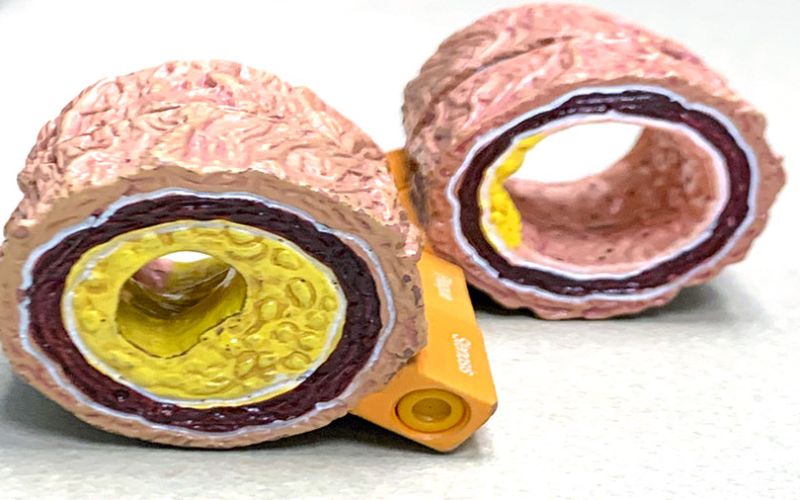Coronary Artery Disease
Also known as coronary atherosclerosis is the most common form of heart disease in the United States and affects both men and women. It is caused by a buildup of plaque formed by calcium and cholesterol on the lining of the blood vessel walls. This plaque buildup is what causes the “hardening” of the arteries. As the plaque builds up in areas it can limit blood flow to the heart muscle and be a cause of chest pain (angina), heart attack, weakening of the heart muscle, and even death. Coronary artery diseases is the most common cause of death in men and women in the United States.
- Risk Factors for Coronary Artery Disease include:
- High Blood pressure
- High LDL (bad cholesterol)
- Low HDL (good cholesterol)
- Smoking
- Diabetes
- Obesity
- Diet high in saturated and trans fats
- Genetic predisposition
Symptoms of coronary artery disease can include burning or heaviness in the chest, chest pressure, chest pain, stabbing or a dull ache, or symptoms similar to acid reflux. Other symptoms include sweating, shoulder or jaw pain, and acute nausea. Some coronary artery disease may have no symptoms. This is more common in people with diabetes.
The first step to diagnosis is an evaluation by your doctor including medical and family history, physical exam, and risk factor evaluation. The second step includes testing. Several tests can be used to help identify coronary artery disease. There is no single definitive test. Possible tests include EKG, echocardiogram (ultrasound), blood tests, coronary catheterization (angiogram)
- How is coronary artery disease treated?
- Most coronary atherosclerosis is treated with medication and lifestyle modifications (diet, exercise, weight loss, avoidance of saturated and trans fats.
- Some coronary disease that is more severe is treated with angioplasty and stenting (PCI) vs surgery (coronary artery bypass grafting also known as CABG pronounced cabbage)
- How do I know if I need surgery over medications or stenting?
- The decision regarding PCI vs CABG is a complex one. Several factors are considered when offering one option over another. Factors such as the number and locations of the blockages in the coronary arteries, associated diseases such as diabetes, family history, your age. Extensive research beginning in the 1950s has helped us determine who is better served with CABG vs PCI vs medications. Your doctors will discuss your specific indications and consult with each other to determine the plan best for you.
- What if I require surgery?
- If the recommendation is for you to undergo coronary bypass surgery (CABG) the next step will be to meet with a cardiothoracic surgeon. CABG is the most common performed heart operation today. It is major open heart surgery and will require opening of your breastbone. This operation is designed to restore blood flow around the areas of blockage in your coronary arteries by using a piece of vein or a mammary artery from inside your chest to reroute blood flow around the blocked area. You will require hospitalization after surgery with an average 1-2 day stay in the intensive care unit.
Want to know more?
https://ctsurgerypatients.org/adult-heart-disease/coronary-artery-disease
